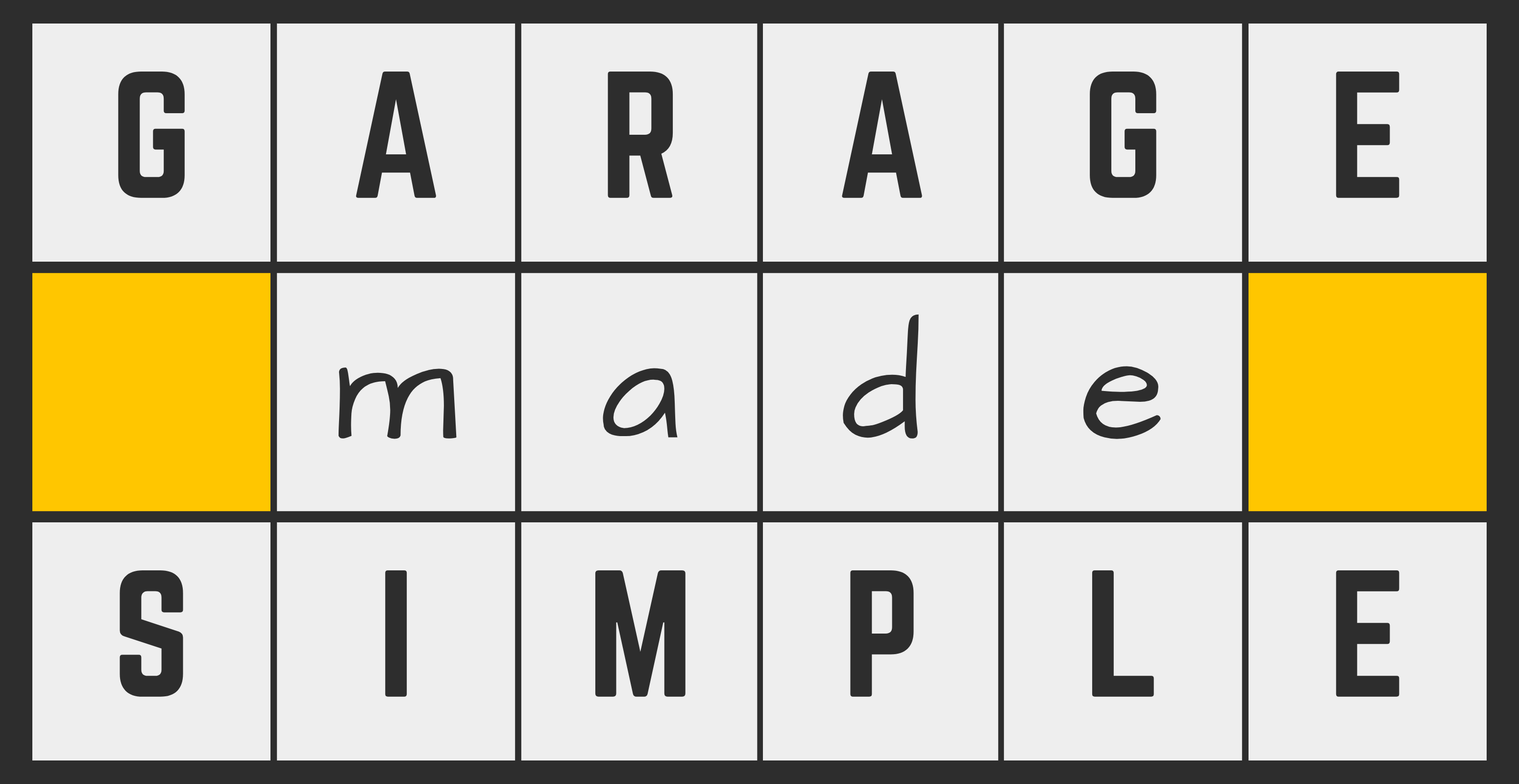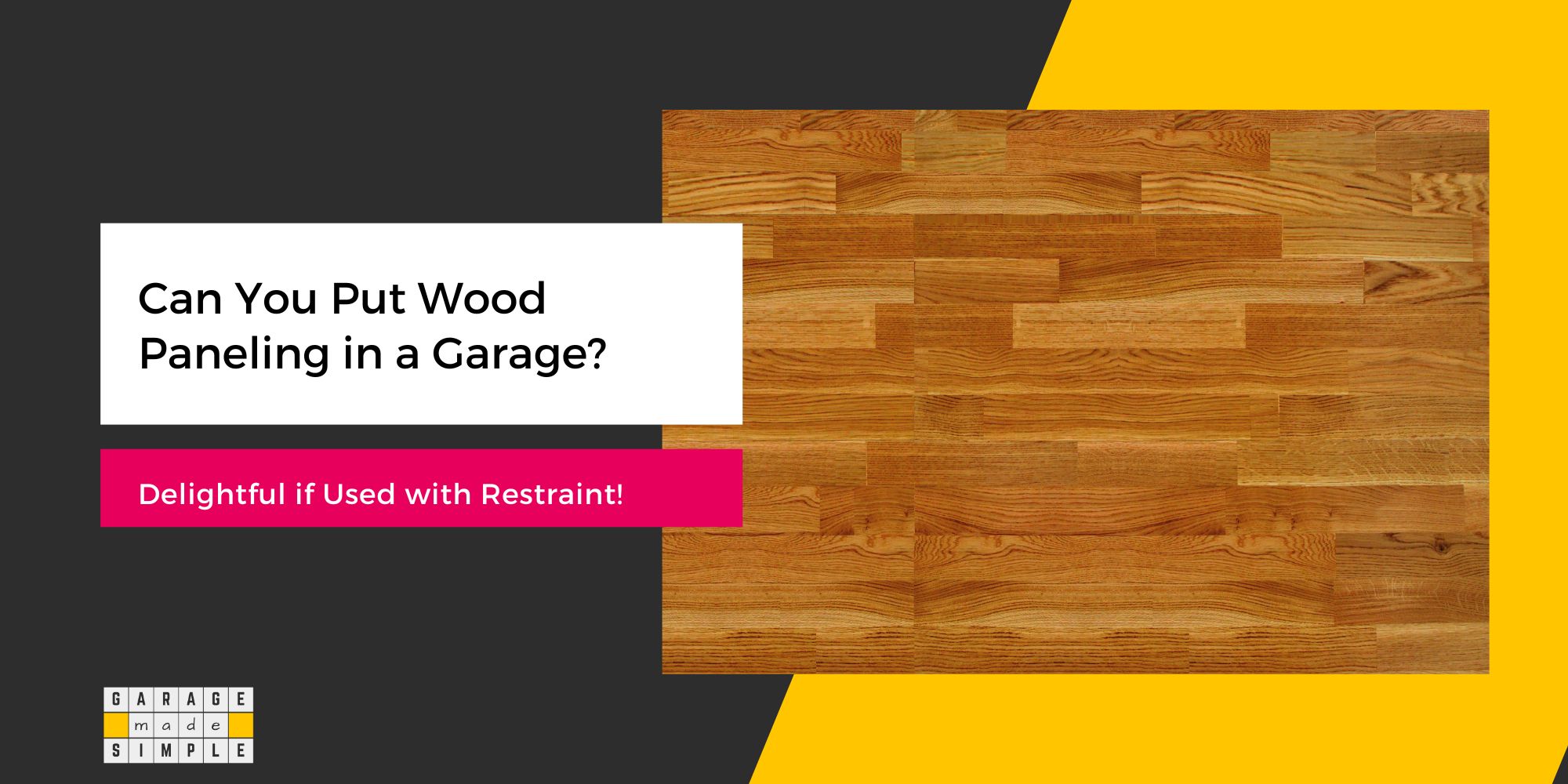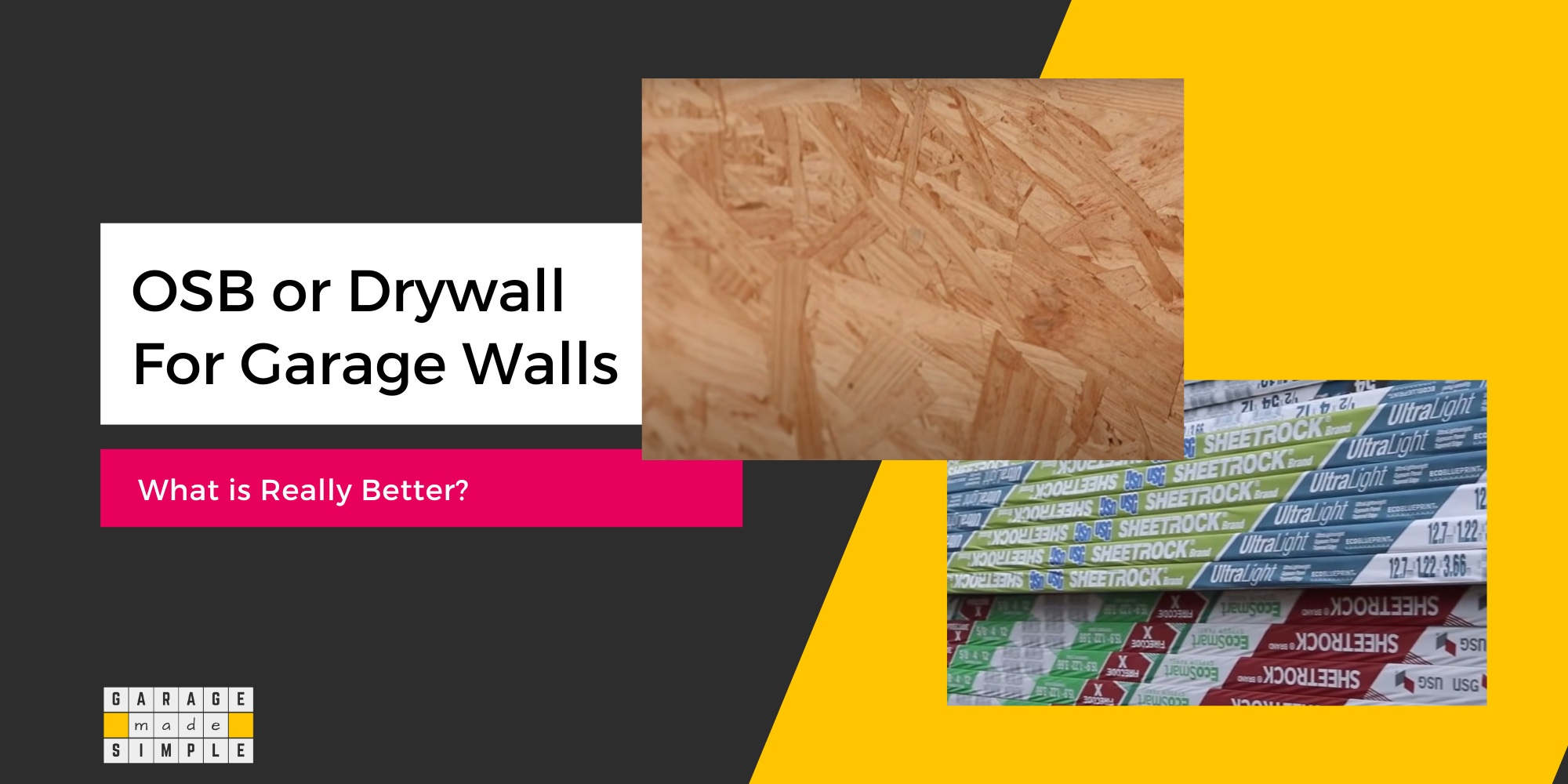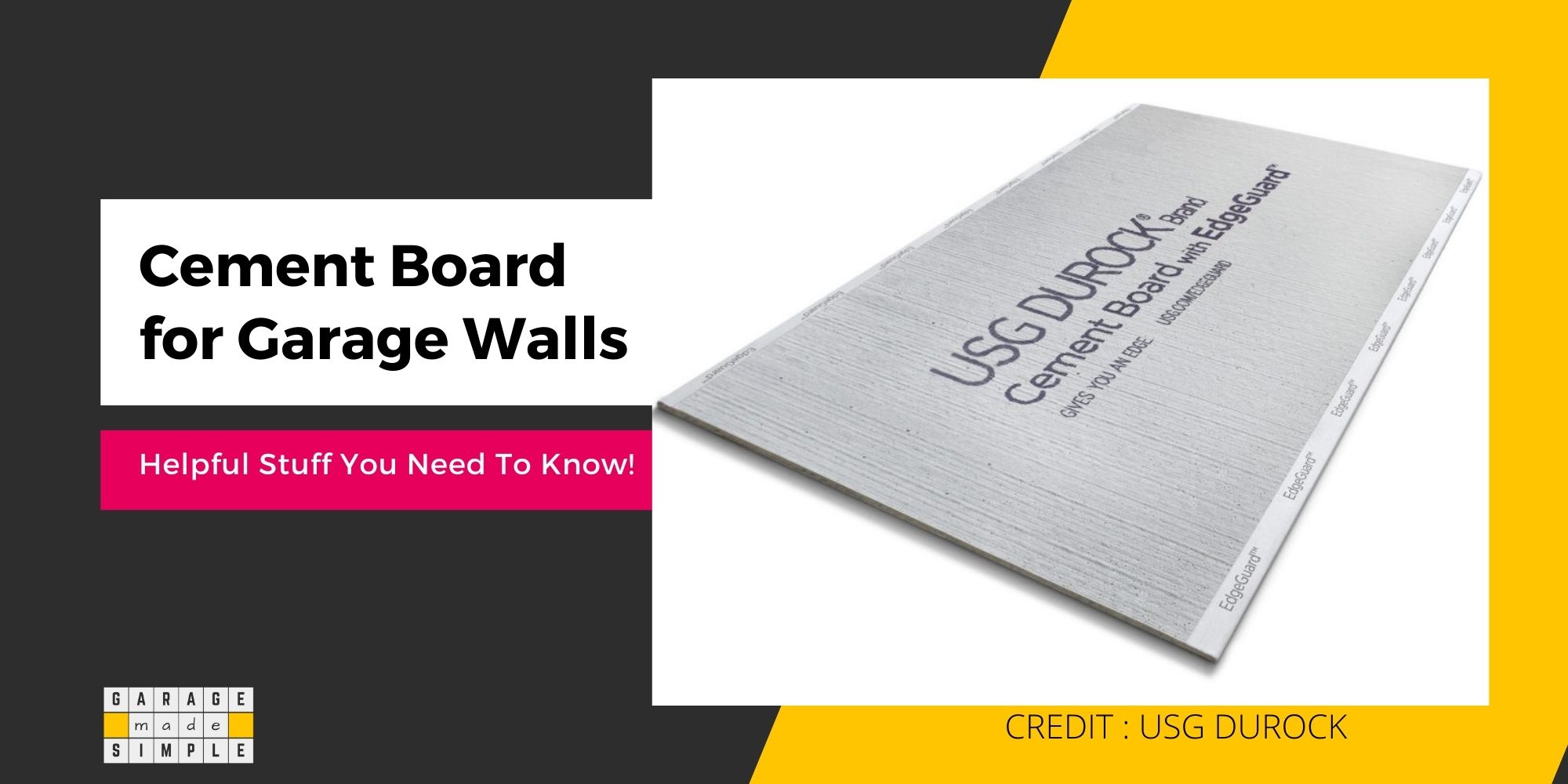Nails vs Screws for Framing Garage Walls: Which is a Better Choice?
As an Amazon Associate, I earn from qualifying purchases.
Nails vs Screws for Framing: Which is Better?
If you are building a new garage you want to make sure that you frame the walls real well. Quality wood studs are, of course, important. No less important are the fasteners. Both nails and screws are fasteners that are normally used in any woodworking project. But, when it comes to nails vs screws for framing, which is better?
Nails are the preferred option for fastening garage wall studs in the US. Nails are cheap, easy to drive in and have high shear strength to support the weight of the garage roof, drywall and siding.
Screws can also be used for framing but they are not the best choice. Screws are more appropriate for carpentry projects, affixing cabinets or shelves, etc. Screws offer better control & precision. They can also be extracted, if required.
In this post I examine the debate between nails vs screws for framing garage walls. There are many reasons why nails work best for framing garage walls, but there are applications where using a screw is preferable.
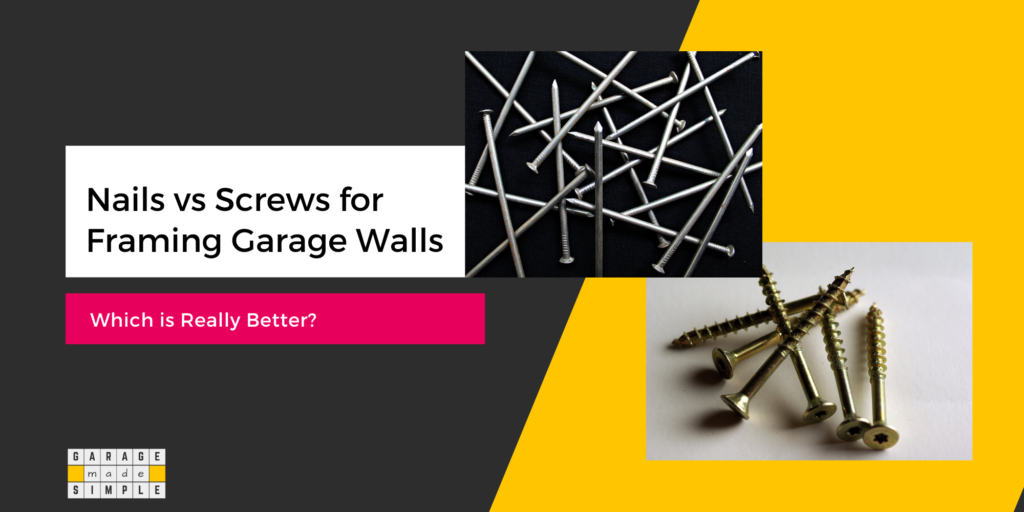
The reality is that you will use both nails and screws as you build your garage. You just need to know which one is the right choice for a job and why.
Why Use Nails for Framing Garage Walls?
Using nails rather than screws for framing garage walls is pretty much the norm in the US. When it comes to framing, using nails has the following advantages:
High Shear Strength
Shear strength is very important in framing. The garage wall frame needs to support the weight of the building materials, such as drywall, roofing, and siding.
Nails are stronger than screws when it comes to shear strength. Nails are flexible and may deform slightly under load but they do not snap. Screws are more likely to snap under shearing load than nails.
The shear strength of screws is lower than nails because of the threading. Threading creates a continuous fault line in the screw and its ability to handle shear loads is reduced. Further screws are made of hardened steel. Hardened steel has high tensile strength but low flexibility.
Screws can snap easily, at any point between the threads, when subjected to lateral loads.
Easy to Drive In
Nails are easier to drive into wood than screws. A few blows from a hammer is all you need. Driving nails is fast too.
When framing a garage wall plenty of nails need to be driven into the 2X4 studs. With a nail gun you can get the job done very fast.
Lower Cost
In large projects, such as framing garage walls you need a lot of fasteners. While each nail or screw may not seem to cost much, it all adds up.
Easy Availability
Nails are more readily available than screws. You can find them at any hardware store, Home Depot or order them online from Amazon.
Can You Use Screws for Stud Framing?
Screws can be used for stud framing. The code does not encourage or discourage the use of screws for framing. In fact, sometimes screws are used in framing. Screws do have some advantages over nails.
Better Grip
Screws have a tremendous grip because of the threads. They are more resistant to vibration and will not come loose like nails. There may be situations when the load is trying to pull two pieces of wood apart. In such situations screws are preferred over nails.
Easier to Remove
Screws are really easy to remove. Just unscrew them. It is much more difficult to remove nails. Screws are more forgiving and make it easy to repair or relocate joints if required.
When you are framing garage walls, once you are done you are done. You almost never revisit a frame to make modifications. If you need to strengthen some part of the frame, you just drive in a few more nails.
However, when making furniture, hanging drywall or putting up a TV, you may need to make modifications. Using screws in such situations makes more sense as it gives you the flexibility to make repairs or modifications if needed.
Higher Corrosion Resistance
The chemicals used in pressure-treated lumber can corrode nails over time. Screws have a higher corrosion resistance than nails, As such, screws may be more suitable for pressure-treated lumber joints.
Ultimately, when it comes to nails vs screws for framing garage walls, nails certainly come on tops.
What Kind of Nails to Use for 2×4 Framing?
Common nails are strong, versatile, and widely available. The common nail has a large, flat head and is made from soft, low-carbon steel. Such nails are easy to drive into wood.
Garage walls are, almost always, framed using 2x4s (also known as dimensional lumber). Common nails are the most popular choice when it comes to framing garage walls.
Lateral strength is largely a function of a nail’s diameter and the density of the type of wood into which the nail is driven. For example, 10d and 12d nails have the same diameter and the same lateral strength in each type of wood.
JLC online
However, the sturdiness of garage wall framing also depends on the length of the nail used. The Uniform Building Code (UBC) requires 1 ¾ ” of penetration into the nailed-to member. Keep in mind that the actual dimensions of a 2X4 stud is 1 ½ “ X 3 ½ “.
10d common nails are by far the most prescribed and used in stud wall framing.
10d nails are 3 inches long, have a shank diameter of 0.148 inches (9 gauge) and a head diameter of 5/16 inches. They have a diamond point and a smooth shank. They work well as the length is just right for a secure joint between two 2X4 studs.
A 10d common nail can also be used with newly treated lumber. It is resistant to corrosion as it usually has a hot galvanized finish.
12d nails are 3 ¼ inches long, have a shank diameter of 0.148 inches (9 gauge) and a head diameter of 5/16 inches. A 12d nail will result in a stronger wall compared to a 10d nail but is not necessary in most cases.
Bottom Line
The bottom line is that a 10d nail is long enough for most common detached garage wall framing situations. Further on the question of nails vs screws for garage wall framing the evidence is in favor of nails.
Nails are best in applications where shear strength is critical, while screws are best in applications where grip strength is more important.
Thank you very much for reading the post. I do hope you found it informative and useful.
